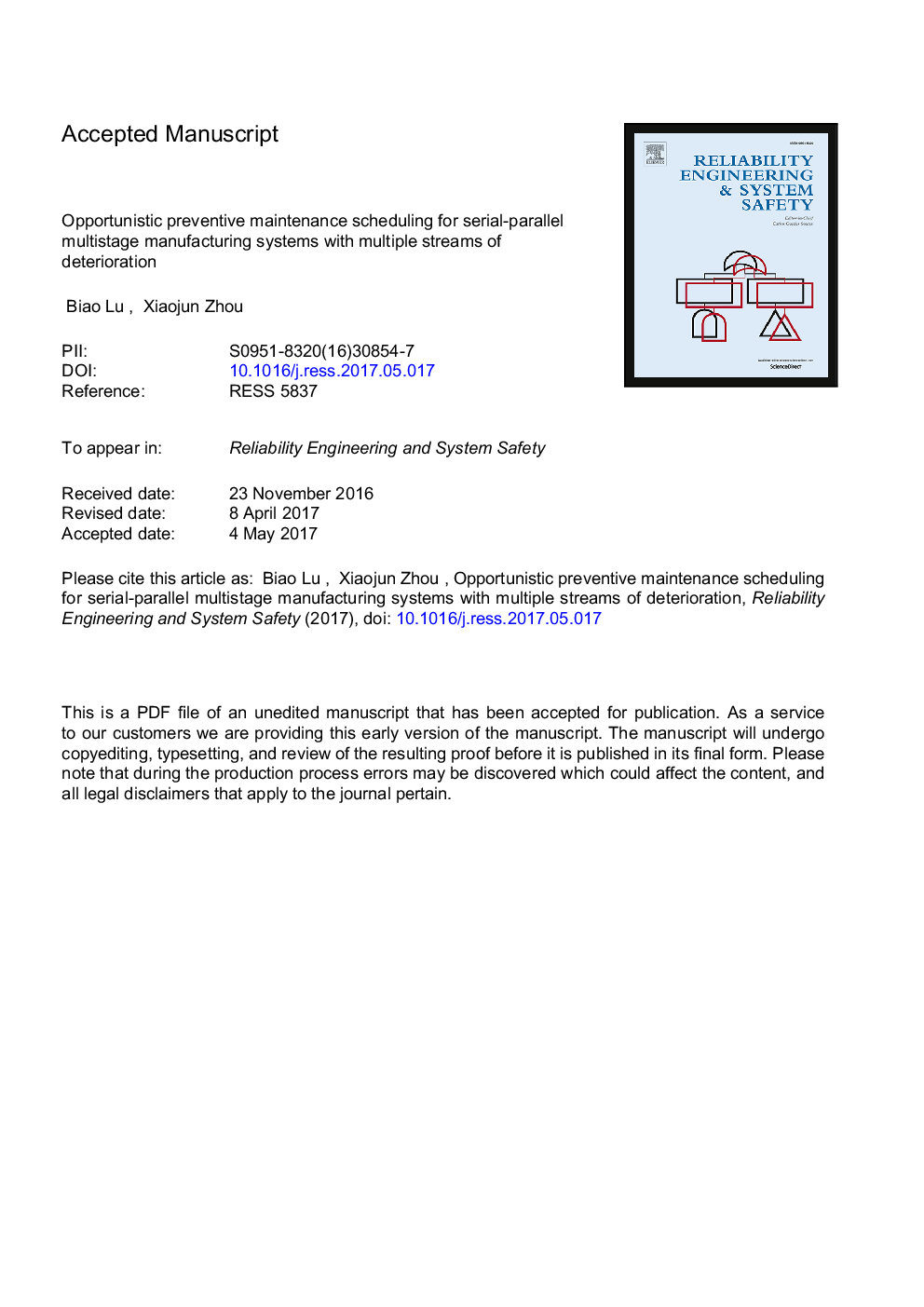| Article ID | Journal | Published Year | Pages | File Type |
|---|---|---|---|---|
| 5019417 | Reliability Engineering & System Safety | 2017 | 41 Pages |
Abstract
This paper proposes a novel opportunistic preventive maintenance (PM) scheduling methodology for the serial-parallel multistage manufacturing systems (SP-MMSs), where PM is performed to improve both the reliability and product quality. A SP-MMS has two essential characteristics: (i) the products can go through different process routes; (ii) the deterioration of a machine will not only affect the key product characteristics (KPCs) formed at the current stage but also propagate to downstream stages and then affect the KPCs formed there. Consequently, the propagation of machine deterioration along different routes will generate multiple streams of deterioration. This phenomenon is mathematically modeled to evaluate the quality of final products. The PM scheduling is based on the modeling of total maintenance cost including minimal repair cost, quality loss and PM-related costs. Firstly, a tentative PM schedule is made for each individual machine by minimizing the corresponding total maintenance cost. Secondly, the tentative PM schedules of all machines are further adjusted to obtain the optimal PM schedule for the system by jointly considering the economic dependence and control of final product quality. A case study shows that the methodology can ensure reasonably high reliability and final product quality for the system with a low total maintenance cost.
Related Topics
Physical Sciences and Engineering
Engineering
Mechanical Engineering
Authors
Biao Lu, Xiaojun Zhou,
